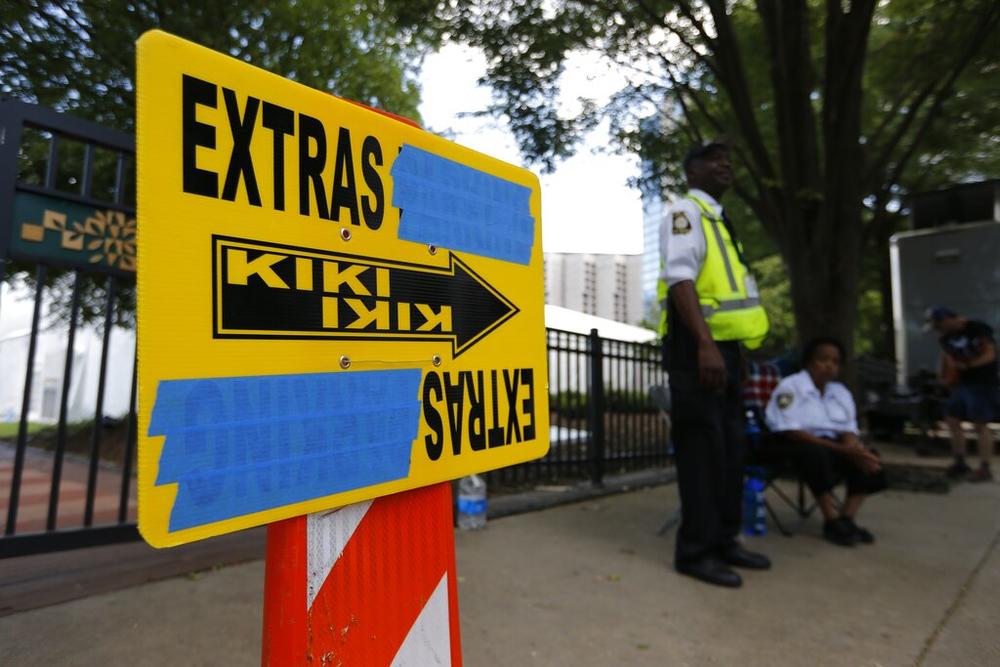
Caption
In this 2019 photo, guards are posted near Centennial Olympic Park in downtown Atlanta near the set for Clint Eastwood's film "Richard Jewell." One of the nation's largest film crew unions voted Monday, Oct. 4, 2021, to potentially strike over long hours.
Credit: AP Photo/Andrea Smith

